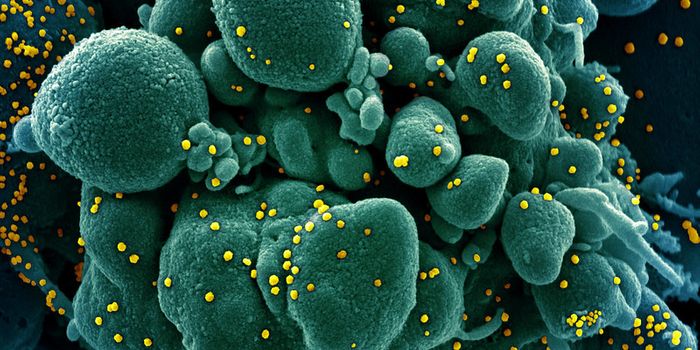Advances in Long COVID Diagnostics
Scientists and clinicians are learning more about the potential causes of long COVID and how to diagnose it in patients. As we gain insight, there is a greater likelihood that effective treatments for the disorder will be developed as well. Research has estimated that about ten percent of people who get COVID-19 will develop long COVID, in which symptoms like fatigue, brain fog, and gastrointestinal distress don't resolve for months after the acute phase of COVID-19 is over.
Two new studies could improve diagnostics for long COVID, which can still be a subjective challenge for clinicians. The wide range of symptoms that the disorder causes can be a hurdle to accurate identification, and make it tough to differentiate it from similar problems such as chronic fatigue or fibromyalgia.
Publishing in Scientific Reports, one research team analyzed the symptoms that long COVID patients experience in an attempt to improve treatments. In this work, the researchers assessed 252 long COVID patients. The investigators determined that complex and severe symptoms had arisen in these individuals regardless of their age, gender, how serious their initial COVID-19 infection was, or whether they had preexisting conditions.
These findings are different from those in another, much larger study that suggested that long COVID is more likely in people who have been hospitalized compared to those who were not hospitalized. However, this report also noted that since the vast majority of people who got COVID-19 were not hospitalized, most long COVID cases will arise in unhospitalized people who only had a mild acute illness.
Like other studies of long COVID, this latest report has found that the most common symptoms were fatigue (which appeared in 89 percent of study participants), brain fog (89 percent), and concentration difficulties (77 percent). However, there are also 18 different symptoms that were linked to long COVID in this report. Testing showed that about half of patients were cognitively impaired, while 65 percent of individuals rated their own mental health as poor. Many of the study participants had lost the ability to work, and 73 percent said their physical health was also poor.
Another study reported in the journal Biomedicines has shown that a blood biomarker test can be used to distinguish between long COVID and fibromyalgia, a disorder that has symptoms like sleep difficulties and fatigue in common with long COVID. This biomarker is present in those with fibromyalgia, but not people with long COVID.
"We hope findings can not only enhance our understanding of long COVID but also pave the way for targeted diagnostics and interventions," said W. Michael Brode, MD, the medical director of the Post-COVID-19 Program at UT Health Austin. "Millions of Americans are still living with the scars of the pandemic, and we hope to translate these insights into tangible health care solutions."
Sources: University of Texas at Austin, Scientific Reports, Biomedicines









